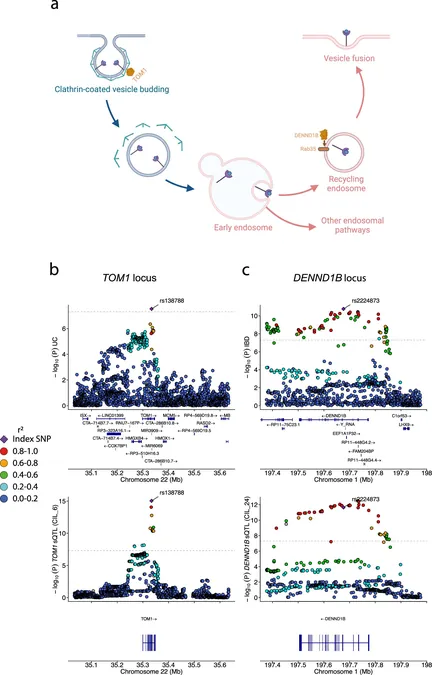
Unveiling the Hidden Forces Behind Autoimmune Diseases: New Insights from Immune Cell Research
2025-08-27
Author: John Tan
Revolutionary Study Sheds Light on Autoimmune Triggers
In a groundbreaking study published in *Nature Communications*, researchers have revealed the genetic underpinnings of autoimmune diseases like inflammatory bowel disease (IBD) by reactivating white blood cells known as macrophages. By exposing these immune cells to various stimuli that mimic infections, the scientists from the Wellcome Sanger Institute have provided unprecedented insights into how our genes impact disease susceptibility.
The MacroMap Breakthrough
This research has resulted in the creation of an extensive dataset named MacroMap, which charts genetic effects within immune cells. This revolutionary dataset opens new pathways for understanding how genes behave in actual disease scenarios, pushing beyond traditional studies that often overlook the dynamic nature of gene expression.
Why Current Research Falls Short
Historically, genetic studies have primarily focused on 'resting' cells, failing to capture the full scope of gene activity during an immune response. This oversight means that many genetic variants linked to diseases have gone unnoticed, as they only manifest when the cells are stimulated by real-life conditions, such as bacterial or viral infections.
The Role of Macrophages in Immune Response
To delve deeper, researchers utilized human induced pluripotent stem cells (iPSCs) derived from 209 healthy individuals, converting them into macrophages. These advanced cells were then stimulated with 24 different factors designed to trigger immune responses, including viral mimics, bacterial components, and immune signaling molecules.
Groundbreaking Findings on Gene Activity
The study’s findings were eye-opening. Researchers identified 1,955 connections between gene activity and genetic variants associated with diseases, with over half—about 45%—only visible after stimulation. For instance, a variant linked to coronary artery disease was found to amplify the activity of a gene named CTSA, but this interaction only occurred under inflammatory conditions.
Diving Deeper: RNA Splicing Insights
In a complementary exploration from the MacroMap initiative, researchers also examined RNA splicing, a vital process where cells edit RNA to produce proteins. Their investigation found that more than 5,000 genes exhibited altered splicing patterns in response to the stimuli, unveiling genetic risk factors for autoimmune diseases closely tied to these splicing variations. Notably, one genetic modification increased the activity of a rare form of the gene PTPN2, suggesting a heightened risk for IBD.
The Importance of Context in Genetic Research
These groundbreaking studies emphasize the necessity for genetic research to occur within appropriate biological contexts. The research team concluded that many genetic influences on health remain concealed in inactive cells. Future investigations are urged to prioritize dynamic, stimulated immune cells to uncover deeper insights into the genetic basis of health and disease.



 Brasil (PT)
Brasil (PT)
 Canada (EN)
Canada (EN)
 Chile (ES)
Chile (ES)
 Česko (CS)
Česko (CS)
 대한민국 (KO)
대한민국 (KO)
 España (ES)
España (ES)
 France (FR)
France (FR)
 Hong Kong (EN)
Hong Kong (EN)
 Italia (IT)
Italia (IT)
 日本 (JA)
日本 (JA)
 Magyarország (HU)
Magyarország (HU)
 Norge (NO)
Norge (NO)
 Polska (PL)
Polska (PL)
 Schweiz (DE)
Schweiz (DE)
 Singapore (EN)
Singapore (EN)
 Sverige (SV)
Sverige (SV)
 Suomi (FI)
Suomi (FI)
 Türkiye (TR)
Türkiye (TR)
 الإمارات العربية المتحدة (AR)
الإمارات العربية المتحدة (AR)